Celebrating Jewish Atlanta’s 40 Under 40
Jewish Atlanta's 40 Under 40 were recognized Dec. 11 at the Sandy Springs Performing Arts Center.
What was most surprising about the gathering of winners of Jewish Atlanta’s 40 Under 40 awards was that many of them know and work with each other through the Atlanta Jewish community. So when they united to celebrate their achievement at a luncheon Dec. 11, hosted by the AJT and sponsored by Israel Bonds and A Kosher Touch Catering, they expressed a familiar connection. Some even sat together and schmoozed over a delicious lunch of salmon and couscous, spinach and pasta salad by the popular caterer at the Sandy Springs Performing Arts Center.
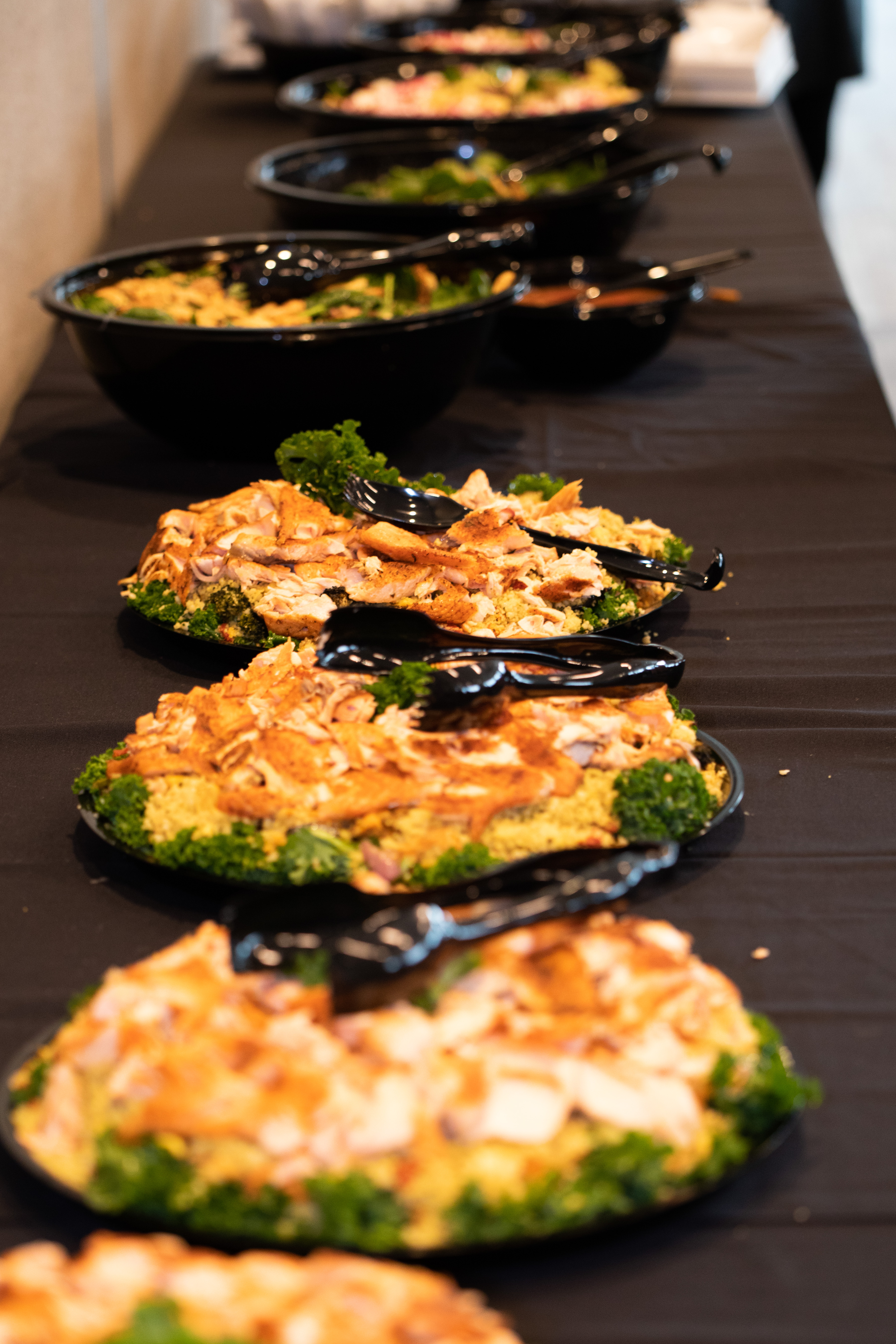
About 120 people attended the luncheon to recognize the 40 Under 40 honorees. They were chosen in July from among 84 nominations based on their success and achievements as active members of Jewish Atlanta. “Ultimately, we went for an overall feeling that the winners make Jewish Atlanta a better place,” Michael Morris, owner-publisher of the AJT, said in his opening remarks. “Aside from their impressive work resumes, their contributions to the Jewish community are unparalleled and their commitment to Jewish values are unmatched.”
A few guests who attended the event in honor of their Under 40 relatives echoed that praise. “It’s wonderful to recognize young Jewish people in the community and the impact they make, and my sister is one of them,” Alla Umansky said of the sister she nominated for the award, Maya Lemberg. “My sister is an amazing therapist who guides people through difficult times in their lives and helps people get through their challenges. She is very engaged in her Jewish life,” Umansky added.
Steve Katz was there to support his daughter Julie Katz, assistant director of AJCs Southeastern region. “It’s impressive,” he said of the winners. “It gives me a lot of hope about the Jewish community to see how accomplished they are and how diverse.”
After a brief introduction by sponsor Israel Bonds, including a push for younger investors and leaders in the organization, the 40 Under 40 were recognized. The ceremony was followed by a panel discussion featuring six of the winners: Rabbi Samantha Trief of Temple Sinai; David Hoffman, ADL’s Southeast associate regional director; Kelly Cohen, director of JumpSpark teen engagement; Julie Katz, assistant director of the American Jewish Committee’s Southeastern region; Brian Weiss, president and general manager of television networks recently acquired by Tegna; and Rabbi Chaim Aharon Green of Chabad Intown’s Young Jewish Professionals.

Kaylene Ladinsky, the AJT’s managing publisher and editor, posed several questions to the panelists. Some recurring themes that emerged from their responses were inclusiveness, pride in interfaith engagement, and the role of young people in serving as a “light unto the nation,” bringing about change in the world.
What’s the biggest question or concern you are faced with?
The responses centered on engagement: concern about the level of engagement for those under 40 (Trief); teen engagement (Cohen); how to keep young people engaged and involved in Israel (Katz); being inclusive of interfaith couples (Weiss); and how to make Jewish tradition relatable to 21st century young Jews (Green).
The second question was: What should be our biggest concern for educating our future generations?
“The biggest concern is Jewish continuity,” Green said. The goal is to ensure “there will be a Jewish people.” Also, that Jews are proud to express their Judaism and know how to be Jewish at varying levels of observance, he said.
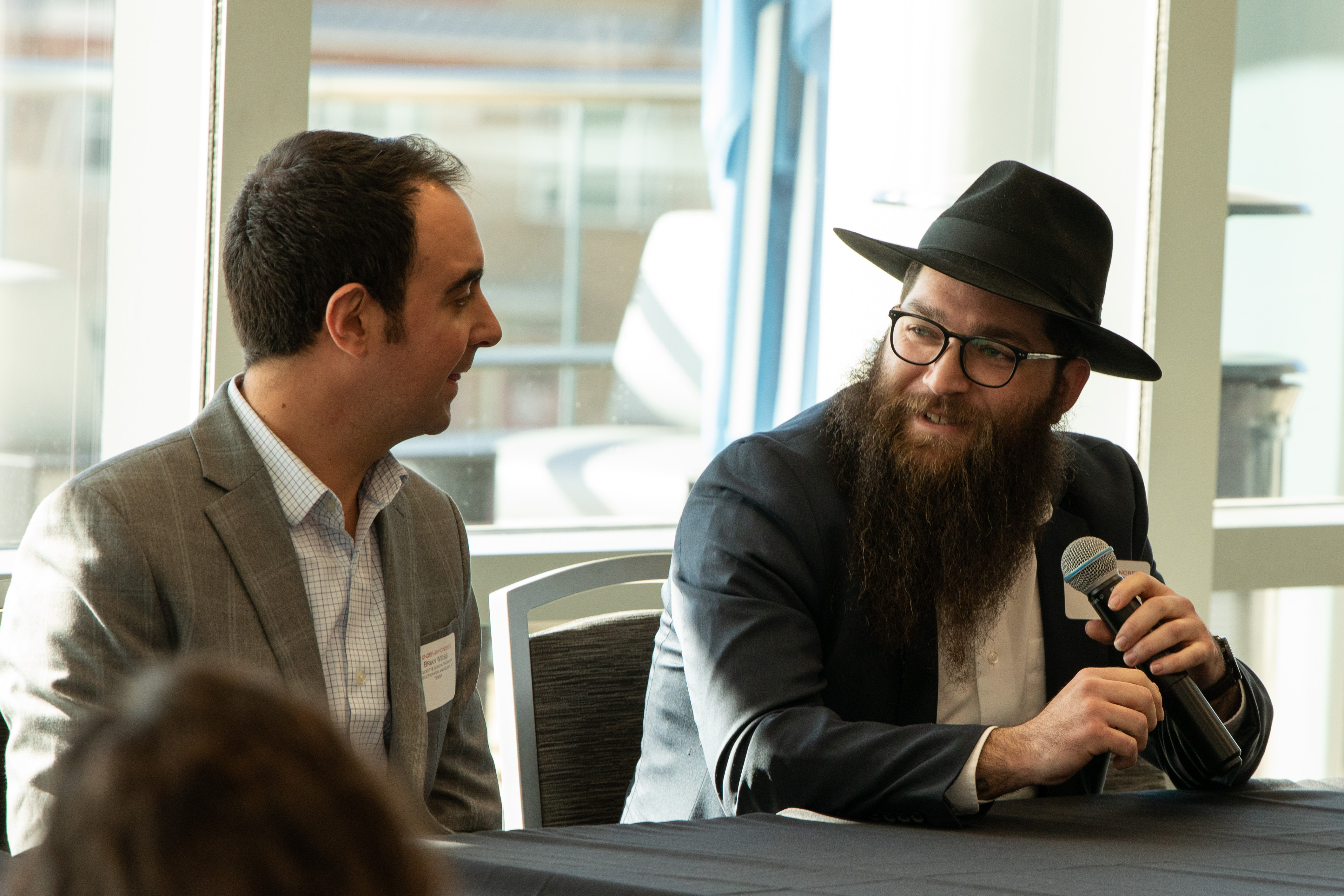
Weiss said Jews shouldn’t take for granted the “why” of their observance when inviting people of other faiths into their midst. Instead, Jews should take the time to review the customs, to avoid the “secularization of the Jewish community.”
Katz thought the biggest concern was teaching students how to have conversations about such topics as anti-Semitism, apartheid, and the Boycott, Divestment and Sanctions movement, and not giving youth “talking points” so they understand the complexity of those issues to have effective conversations about them.
The third question to the panel was posed by Chuck Berk, Israel Bonds’ new national campaign chairman. Do you, as young people, understand and do you feel it’s important for young people to support Israel and what can be done to better educate or bring more young people around to support of Israel?
Weiss, who works with The Temple Young Professionals and interfaith couples, pointed to Honeymoon Israel as way to expose interfaith couples and couples in which one partner didn’t grow up Jewish to a highly subsidized “emotional” trip to Israel.
Katz said the first engagement of children with Israel begins at home. She grew up in a very Zionist house in which the family would talk about Israel and learn about it during Shabbat. The next step is an “immersive experience” in Israel longer than what can be accomplished in a 10-day Birthright Israel trip, she said. “You need to live in Israel to experience it” deeply, through a long-term program.
Cohen said teens want to engage in meaningful learning and multi-narrative conversations. She believes teen Israel travel is changing and going to look different than the past, but that’s not something to be scared or nervous about. “I feel very good about the future. More expansive conversations are going to benefit all of us.”
Hoffman said the model of teen engagement in Israel needs to change. Teens need to experience Birthright before they go to college so they are prepared for the anti-Israel bias they may confront there, he said.
“Israel is very much alive,” Trief said about programs at Temple Sinai. Shinshinim from Israel in Atlanta “represent the pulse of the community, alive and breathing and well.”
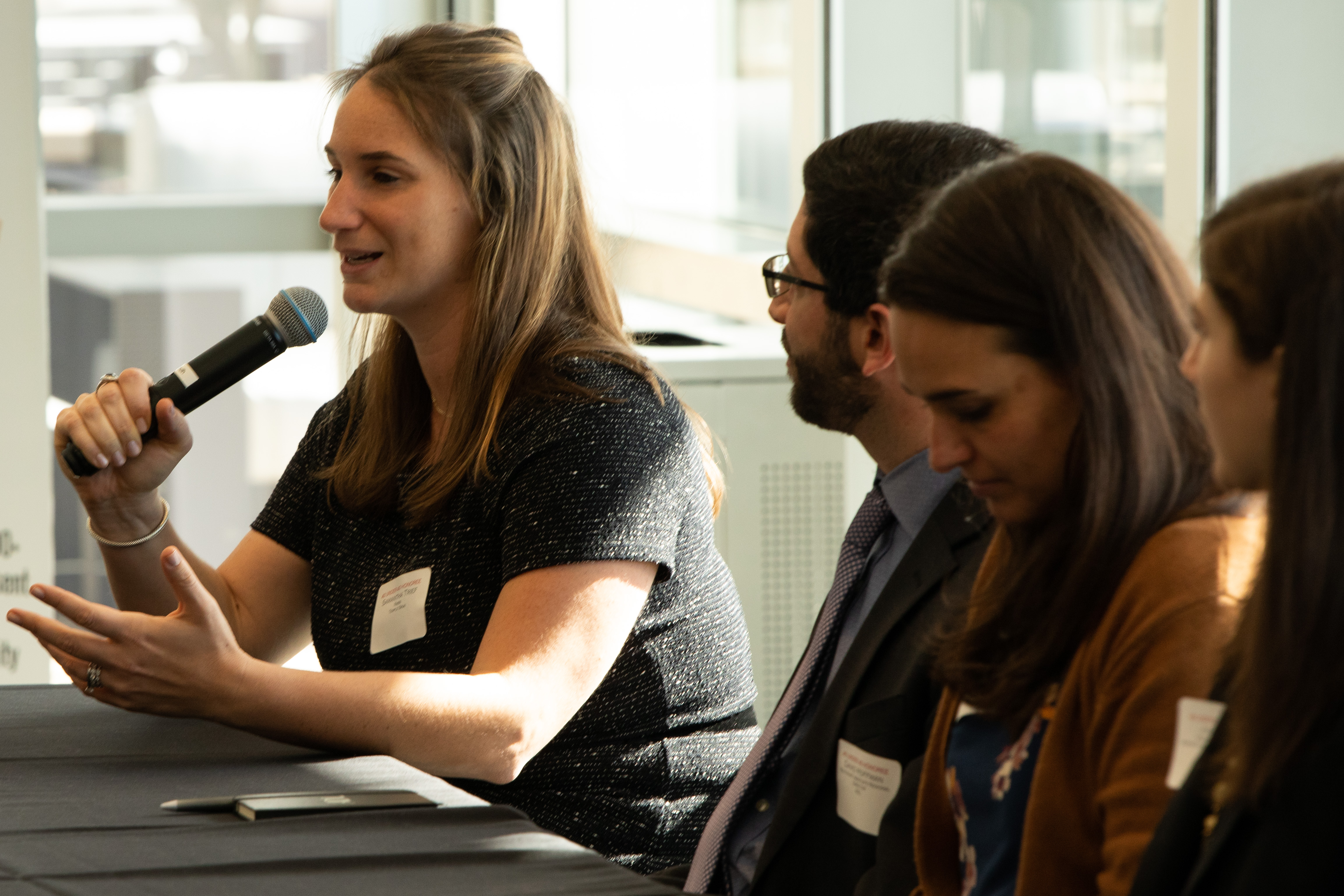
Lastly, Ladinsky asked: From your experience what is the greatest asset the Jewish Atlanta community brings to the greater Jewish population?
A few of the panelists spoke about reaching out across interfaith and ethnic lines to bring people together.
Katz said Jews seem willing to step outside their comfort zones. “Let’s be the light unto the nation,” she challenged. That means engaging with people of different faiths and political views, she said.
Hoffman said, “I think we do a great job capitalizing on the cultural opportunities that we have in Atlanta … our civil rights history.” He cited the ADL’s work with the National Center for Civil and Human Rights, the AJC’s Black-Jewish Coalition, and The Temple-Ebenezer Baptist Church exchange program, saying, “I think it’s really great that we are able to take advantage of that cultural history that we have and I think other communities can engage in that work as well.”
Later, Hoffman added that no matter one’s interest, “there are so many avenues of entry into the Jewish community that are available.”
He said he visited four synagogues on Yom Kippur “because each offers me something different and because I am welcome in each of them, and so I think having all those different points of entry allows for the migration we are seeing to Atlanta, especially in the Jewish community, to be successful.”
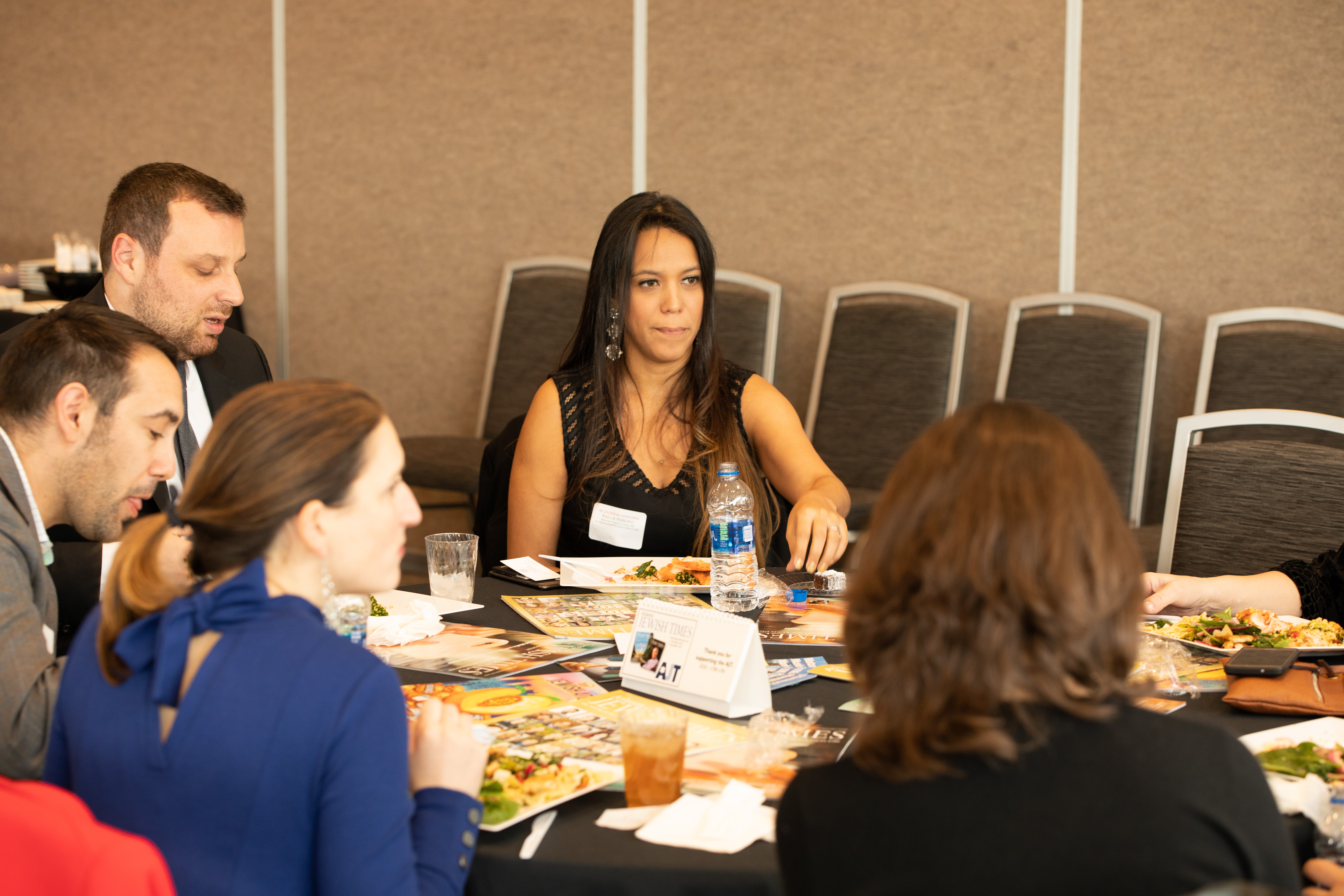
To that, Morris summed up the program. “I think everybody in the room now knows why these six panelists are up here, … why it’s so important and uplifting, to see that this community is in awesome shape with the next generation.” He added that the winners were “the tip of the iceberg in Atlanta, and that is really heartwarming.”



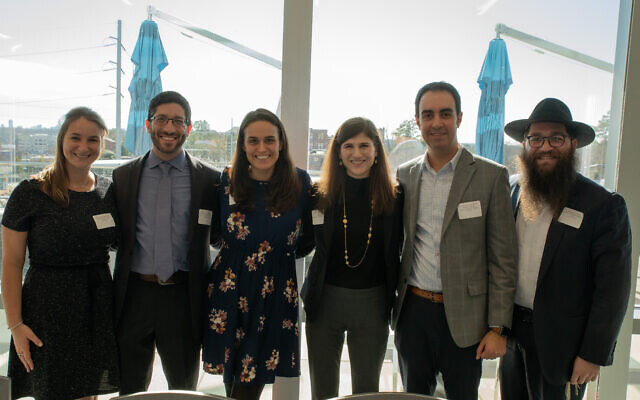
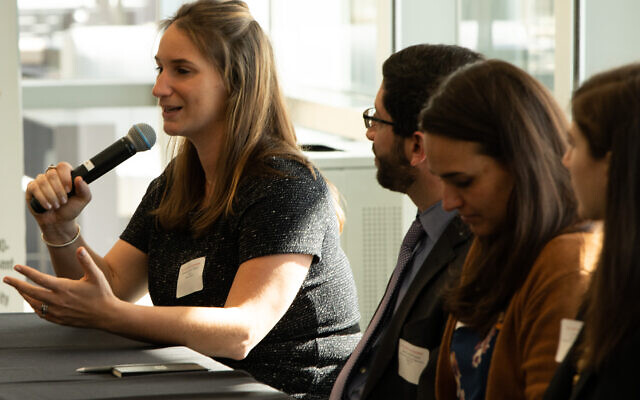
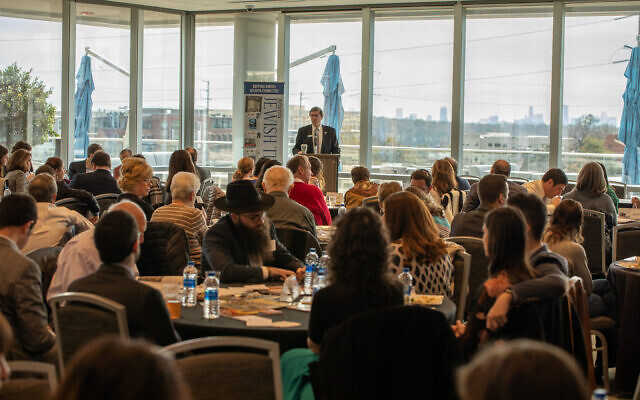
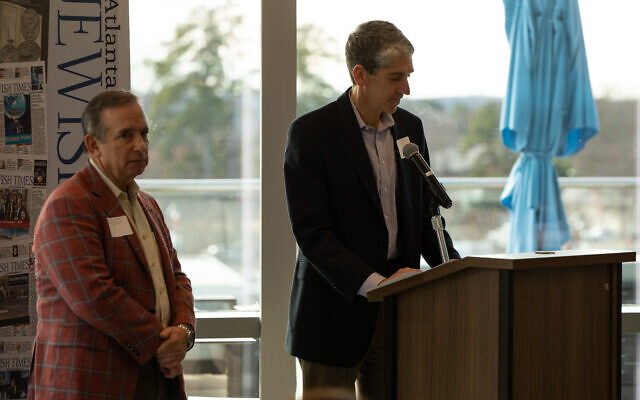
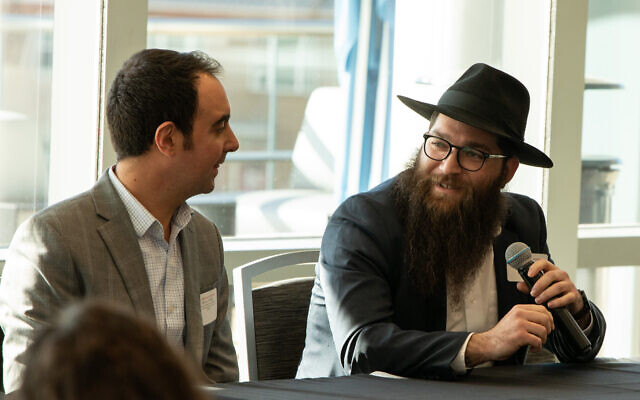
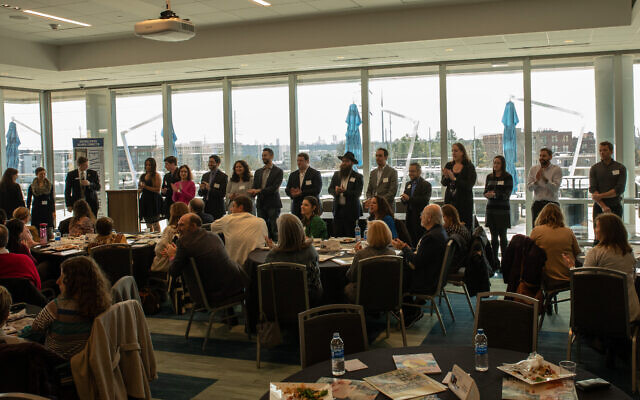
comments